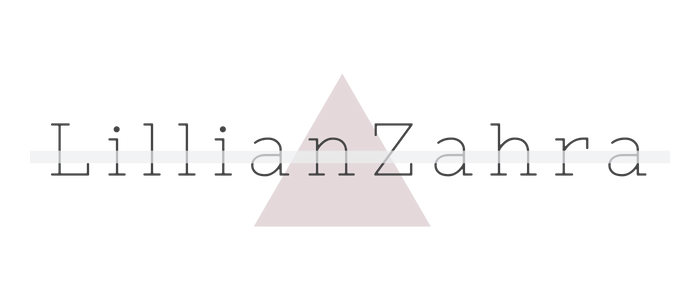Reading List – Feminine Dystopia

While I haven’t quite kept up the reading streak that I had when I first moved to Dubai (a lunchbreak being a distant memory, seven seasons of Mad Men, reacquainting myself with gin), I’m still getting good use from my first generation Kindle.
My most recent reads all have a somewhat similar theme – female authors, strong female characters and a dash of dystopia for good measure.
1. Margaret Atwood – The Blind Assassin
I loved Margaret Atwood before I read this and when my friend F mentioned, three double G&Ts down, that this was one of her favourite books I added it to mental to-read list when it was, in fact, already on my Kindle. Even halfway through, I knew two things – I’d be sad when it was over and it was already one of my favourite books.
The Blind Assassin tells the story of Iris and Laura Chase, sisters growing up between the wars in Canada – bereavement, the complexity of sibling relationships, privilege and the changing society make for a compelling tale before Atwood skilfully weaves in the book-within-a-book – the story of the Blind Assassin. Complex but still immensely readable, terribly sad in the realness of the sisters’ story and with an ending that left me sitting in silence for a good few minutes staring into space – this book left me convinced that Atwood is indeed an actual goddess and that I will do the unthinkable and re-read it sooner rather than later.
“Beginnings are sudden, but also insidious. They creep up on you sideways, they keep to the shadows, then lurk unrecognised. Then later, they spring.“
2. Emily St. John Mandel – Station Eleven
If Atwood is the queen of her craft then Emily St. John Mandel is surely her heir apparent. A fellow Canadian, Mandel’s work reads like a natural continuation in the line of female-led dystopian fiction but her voice and story-telling is completely her own. Beautifully written and almost too plausible to be a settling bedtime read, in a very near-future a virus has wiped out the majority of the population and every creature comfort we have come to rely upon. Amid the scattered survivors, a travelling symphony of actors tour the post-apocalypse North America performing Shakespeare plays. In a world where nothing will be the same again, this feels oddly perfect.
Station Eleven weaves together several plot lines of the last days of “our” world and the new reality. Extremely readable, terrifyingly realistic and with characters I grew to truly care about, this book is almost perfect. Oh, also, I googled the author and she is exactly as cute as I imagined.
“No more Internet. No more social media, no more scrolling through litanies of dreams and nervous hopes and photographs of lunches, cries for help and expressions of contentment and relationship-status updates with heart icons whole or broken, plans to meet up later…No more reading and commenting on the lives of others, and in so doing, feeling slightly less alone in the room.”
3. Naomi Alderman – The Power
Well, Margaret Atwood liked it. And so did I. The Power is firmly set in “our” world – a female mayor, a gangster’s daughter, a runway abuse victim and an aspiring YouTube journalist provide their interweaving tales following the “Day of the Girls”. Girls and women have mysteriously developed the power to cause pain and even death through electrical impulses – a plot device which helps Alderman explore the (admittedly huge) theme of gender (in)equality. While the novel isn’t perfect and some elements felt, to me, overly-simplistic, I found it a hugely enjoyable and (cliche alert) unputdownable read. I read this amid a backdrop of daily revelations of abuses of power and position and the themes that this book explores filled my head for the same amount of time I spent reading it. I loved the writing style and the characters and as a woman who sometimes struggles to find her own “power” I couldn’t help but like the idea of the “Day of the Girls” (a little bit).
“It doesn’t matter that she shouldn’t, that she never would. What matters is that she could, if she wanted. The power to hurt is a kind of wealth.“
4. Megan Hunter – The End We Start From
Another apocalypse, this time distilled into a read-in-one-sitting 140 page serving. This book is beautifully and sparsely written, the lack of detail makes it all the more terrifying as the reader has to fill in the gaps and the chapters are interspersed with biblical-sounding apocalyptic predictions. London is submerging beneath rising flood waters when the protagonist gives birth to a baby boy. This short story covers a family’s journey from comfortable city-dwellers to displaced refugees in a dangerous world. The reason for the (I presumed) environmental crisis is never covered as the focus of the story zooms in on the family’s plight. While a short read, this book covers a lot of ground and is one that has stayed with me long after turning the last page. Oh, and Benedict Cumberbatch’s production company has bought the film rights for this…
“What we call the beginning is often the end. And to make an end is to make a beginning. The end is where we start from.” – T.S. Eliot, Four Quartets





I read Station Eleven and enjoyed it.I'm keen to read the Margaret Attwood one as I studied the Handmaid's Tale in college 🙂
I read Station Eleven and enjoyed it.
I'm keen to read the Margaret Attwood one as I studied the Handmaid's Tale in college 🙂